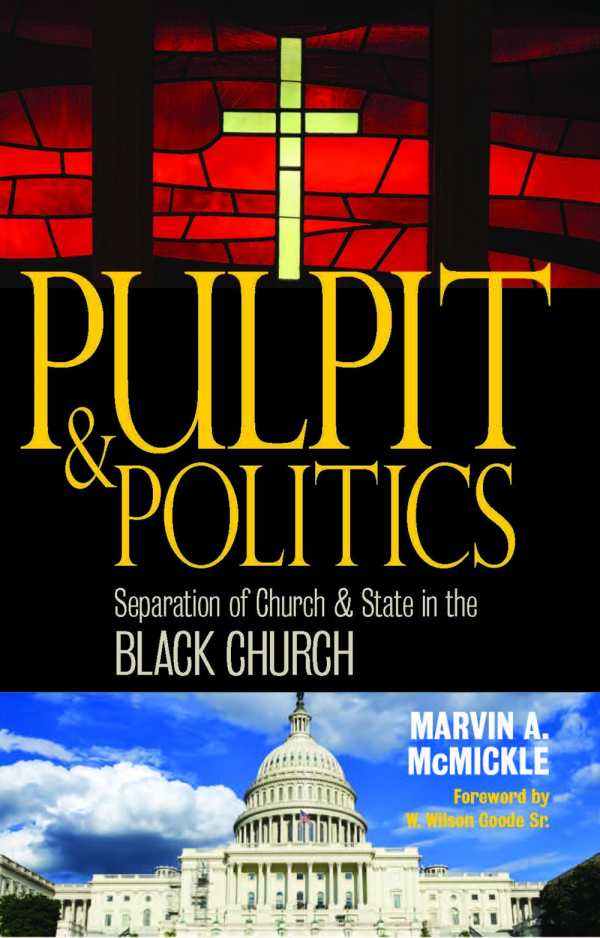Pulpit and Politics
Separation of Church and State in the Black Church
McMickle uses examples of church leaders in politics to explore the history of the separation of church and state.
From the time the federal government first recognized the rights of African Americans to take part in the political process, the black church has often been a source of candidates for office. In Pulpit and Politics, Marvin A. McMickle examines the role of the black church in politics today, and argues in favor of its continued presence in that arena.
McMickle writes from the perspective of a pastor as well as a former candidate for office who ran in primaries to represent Ohio in both the House and Senate. The driving force behind Pulpit and Politics seems to be opposition he faced during those campaigns, from voters who felt his existing job made them question supporting him for the one he sought. He argues that church leaders have a responsibility to get involved and that American history shows a pattern of religious leaders in politics.
As McMickle points out, leaders of the black church got involved in politics in the South during Reconstruction, largely because it was one of the few places where African Americans served in professional posts during that era. Of course, religious leaders like Martin Luther King Jr. and Malcolm X later had crucial influence in politics, and McMickle cites numerous examples through the years of politicians (black and white) who served in both capacities.
Too often, though, the book gets hung up on semantics, such as constant references to how the phrase “separation of church and state” doesn’t appear verbatim in the Constitution. But the people McMickle cites as using that phrase as a reason not to vote for certain candidates weren’t preventing them from running for office. The very history Pulpit and Politics cites provides ample proof, making the book sometimes seem like a preemptive argument against banning religious leaders from running for office. While McMickle’s political views are inclusive, a counterargument could just as easily look at a history of religious candidates with discriminatory views who tried imposing their narrow perspectives.
McMickle also includes his personal philosophy of where the line should be drawn, which is an interesting perspective, given his experience in both worlds. The book provides advice for some of the ways churches can get involved in elections without losing their tax-free status, such as registering voters, driving voters to the polls, hosting a candidate forum, or encouraging early voting. The history is a nice overview for readers who might not be familiar with balancing the roles of church and state and where the two should overlap.
Reviewed by
Jeff Fleischer
Disclosure: This article is not an endorsement, but a review. The publisher of this book provided free copies of the book to have their book reviewed by a professional reviewer. No fee was paid by the publisher for this review. Foreword Reviews only recommends books that we love. Foreword Magazine, Inc. is disclosing this in accordance with the Federal Trade Commission’s 16 CFR, Part 255.

